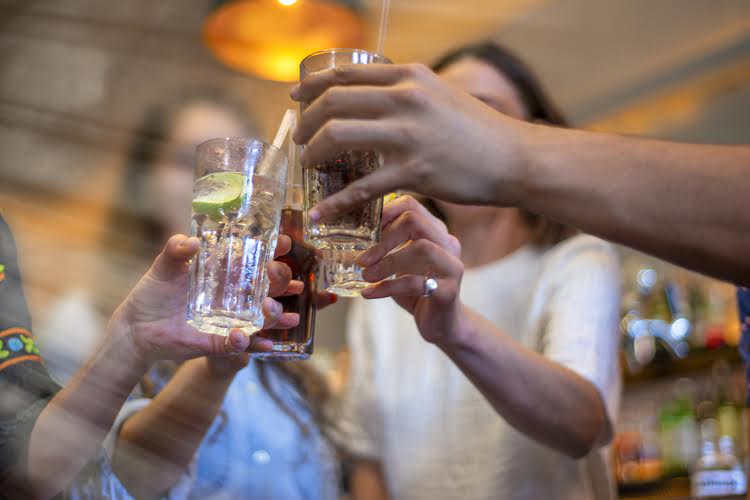Opinion Pain Management Tests the Limits of Drug Addiction Recovery The New York Times
- 28 novembre 2022
- Envoyé par : Louis
- Catégorie: Sober living
From offering valuable guidance and practical tips to encouraging those seeking recovery, and providing much-needed support for loved ones, these stories embody the triumph and transformation that is possible. Get ready to be inspired by the transformative impact of these narratives on the path to recovery. In my own experience, rebuilding relationships has been transformative. Through therapy and support groups, I learned communication skills, set boundaries, followed journal prompts for addiction recovery, took responsibility for my past actions, and committed to sobriety. This has allowed me to rebuild trust, strengthen relationships, and cultivate a supportive network. Rebuilding relationships has improved my personal life and contributed significantly to my overall well-being and ongoing sobriety.

Too, there may be long gaps in a resume that are hard to explain away. Insufficient experience or skill deficits are other common hurdles. Identify other factors in your life—relationships, work—that can help take the focus off addictive Alcoholic ketoacidosis behaviors. Guilt refers to feels of responsibility or remorse for actions that negatively affect others; shame relates to deeply painful feelings of self-unworthiness, reflecting the belief that one is inherently flawed in some way.
Encouraging Seekers of Recovery
The NIH HEAL Initiative also partners with NIDA to fund research within the Consortium on Addiction Recovery Science, a nationwide effort that focuses on research network-building initiatives. Put simply, these projects will benefit communities grappling with opioid misuse and overdose and other substance use disorders by rapidly advancing research aimed at providing effective recovery support services to people who need them. In the past few decades, science has brought us effective behavioral and medication addiction treatments as well as lifesaving treatments that revive people from overdose and give them a chance to seek lasting recovery. Lived experience suggests that individuals may need tools to manage their health long-term, as well as friendship and support from those with similar lived experiences. Research also suggests that support from families can be key to recovery, but that few families become engaged in the process.

One particular challenge that many loved ones face is knowing what to do. This is especially true for those who in the past may have enabled addictive behavior. While every addiction is different, there are some general guidelines that will be helpful in most circumstances. If you’re https://g-markets.net/sober-living/14-reasons-being-sober-makes-your-life-better/ suffering from addiction, or you know someone who is, help is available. The following advice can help you no matter where you are in the recovery process. Living for something, whether it’s taking care of someone, giving back to the community or striving to reach goals.
The Importance of Seeking Help
He states that research shows that family-based support for addiction recovery is critical but often not obtained. Yet sustained, personalized recovery services are essential because treatment is just the first step toward growth and finding a high quality of life without substances. Research on the science of addiction and the treatment of substance use disorders has led to the development of research-based methods that help people to stop using drugs and resume productive lives, also known as being in recovery. There are companies large and small that have recovery-friendly hiring practices. In addition, there are nonprofit organizations such as American in Recovery and the National HIRE Network that specifically help those with addiction or criminal history to find work. Usually for a substantial fee, career transition services help executive and higher-up employees define career goals and help with job searches.
- Because of the way addiction changes the brain, one of the best ways to help when loving someone with an addiction is to provide frequent feedback and encouragement, planning small immediate rewards every day for any positive changes.
- Discovering self-worth and purpose is crucial for drug addiction recovery.
- It helps clients overcome resistance, develop social support networks, and learn from each other’s experiences.
- Medications are provided to ease the symptoms, and physicians monitor people’s vital signs and overall health.
Recovery suggests a state in which the addiction is overcome; clinical experience and research studies provide ample evidence. Recovery from addiction is not a linear process, and increasingly, relapse is seen as an opportunity for learning. Studies show that those who detour back to substance use are responding to drug-related cues in their surroundings—perhaps seeing a hypodermic needle or a whiskey bottle or a person or a place where they once obtained or used drugs. Such triggers are especially potent in the first 90 days of recovery, when most relapse occurs, before the brain has had time to relearn to respond to other rewards and rewire itself to do so. Learning what one’s triggers are and acquiring an array of techniques for dealing with them should be essential components of any recovery program.
How Do You Recover From Alcoholism?
The chronic nature of addiction means that for some people relapse, or a return to drug use after an attempt to stop, can be part of the process, but newer treatments are designed to help with relapse prevention. Relapse rates for drug use are similar to rates for other chronic medical illnesses. If people stop following their medical treatment plan, they are likely to relapse. Like treatment for other chronic diseases such as heart disease or asthma, addiction treatment is not a cure, but a way of managing the condition.
Another is reorienting the brain circuitry of desire—finding or rediscovering a passion or pursuit that gives meaning to life and furnishes personal goals that are capable of supplanting the desire for drugs. A third is establishing and maintaining a strong sense of connection to others; support helps people stay on track, and it helps retune the neural circuits of desire and goal-pursuit. Learning new coping skills for dealing with unpleasant feelings is another pillar of recovery. Only 1.0 percent of people receive substance abuse treatment as an inpatient or outpatient at a specialty facility. The single most popular path is the use of peer support groups in the community.

